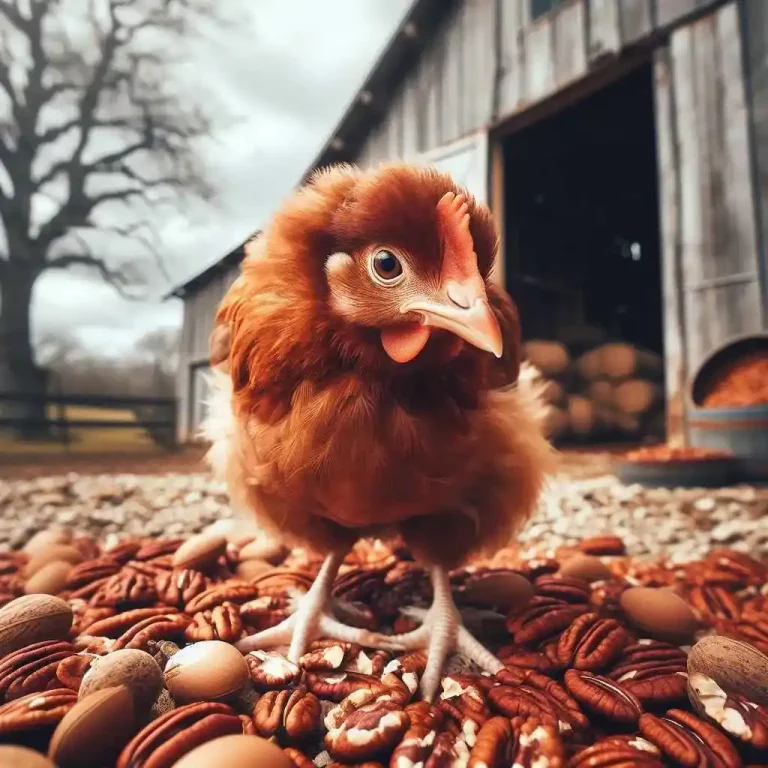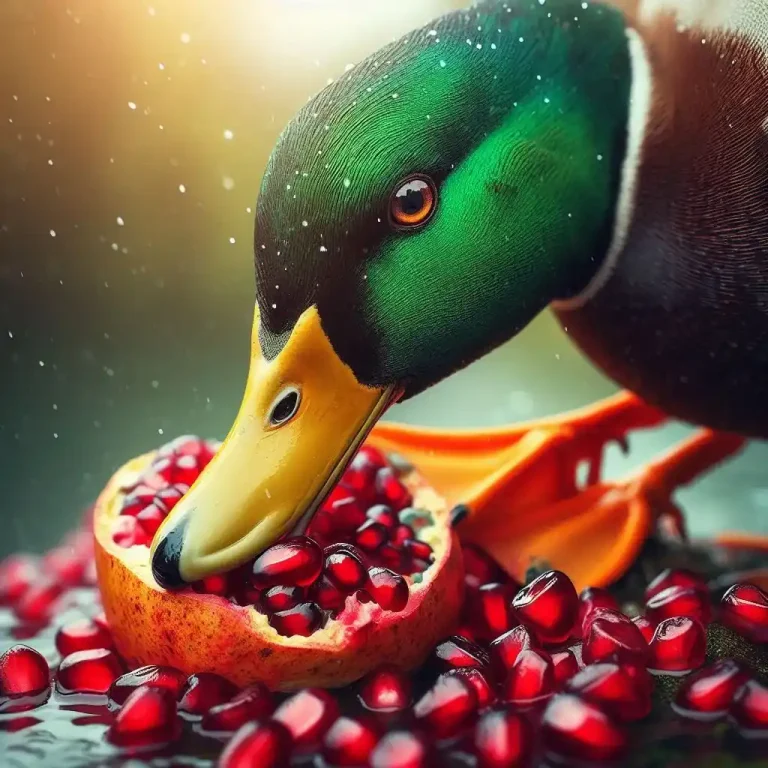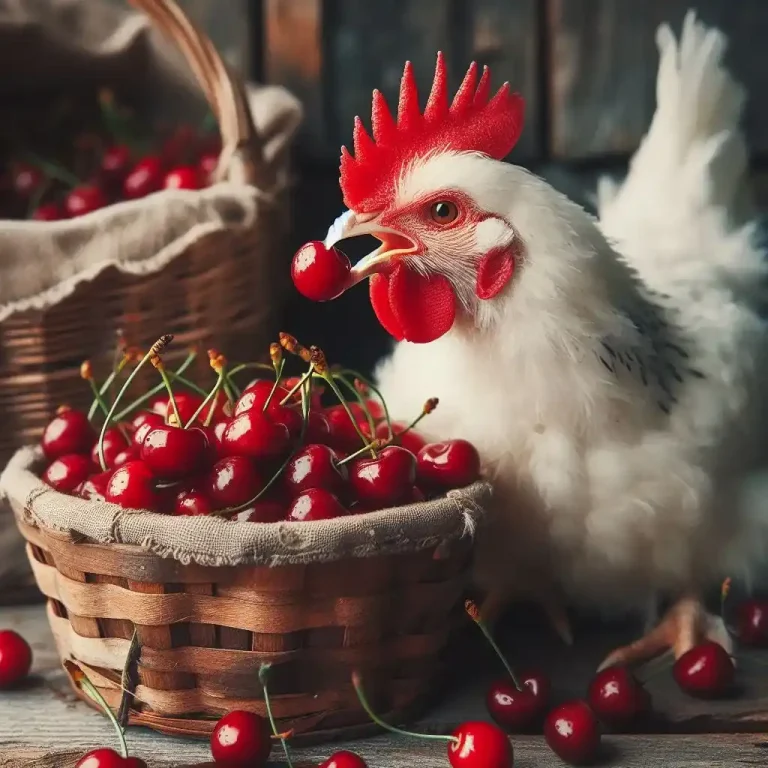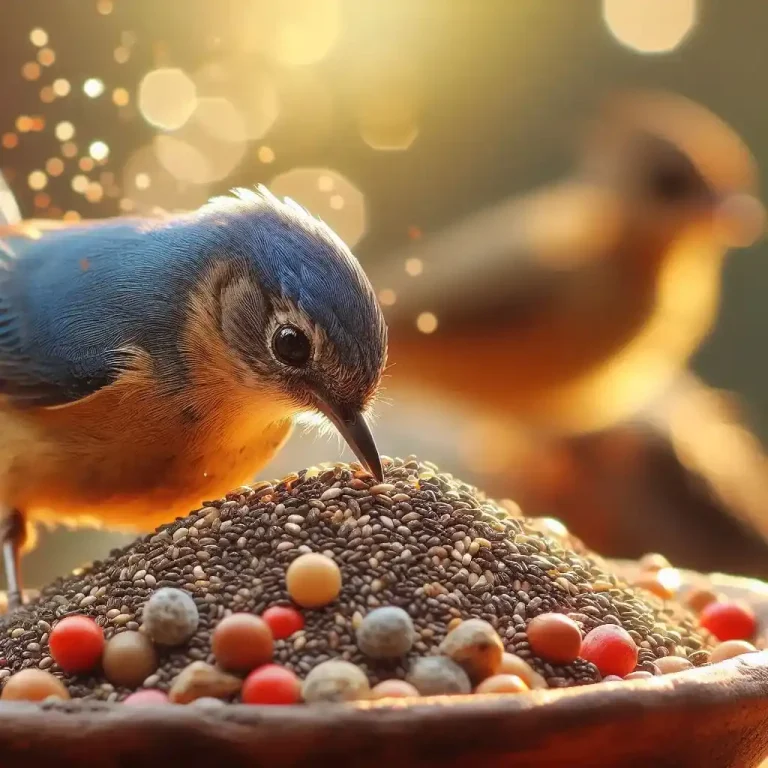Can Ducks Consume Okra
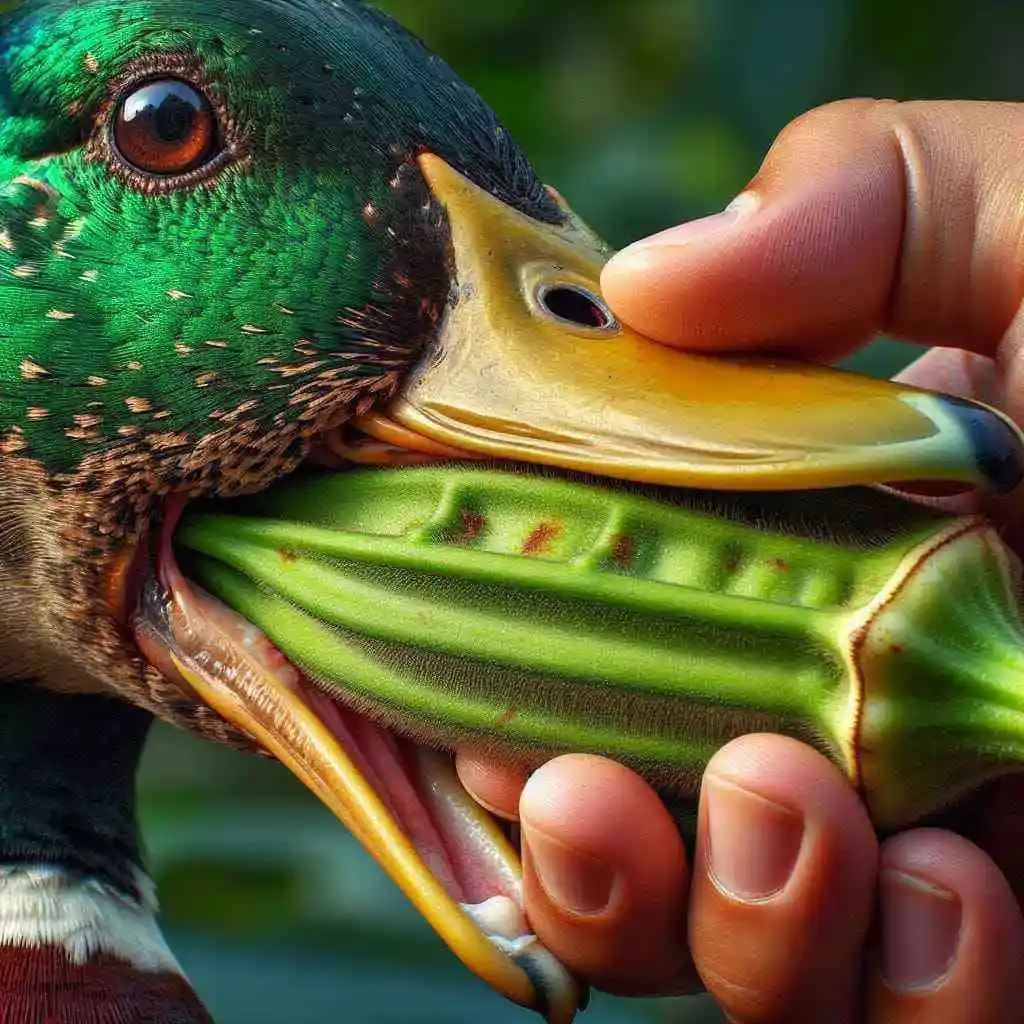
Can Ducks Consume Okra
Okra, also known as lady’s fingers or gumbo, is a nutritious vegetable that is safe for ducks to consume in moderation. Ducks are omnivores and can eat a variety of vegetables as part of their diet, and okra can be a healthy addition to their meals.
Okra is rich in vitamins and minerals, including vitamin C, vitamin K, folate, and magnesium. It also contains antioxidants like beta-carotene and lutein, which can help support the immune system and overall health in ducks.
When feeding okra to ducks, it’s essential to prepare it properly. Okra should be washed thoroughly to remove any dirt or debris and cut into small, bite-sized pieces to prevent choking hazards. Ducks may prefer fresh okra over cooked okra, but both can be offered as part of their diet.
While okra is generally safe for ducks to eat, it’s essential to feed it to them in moderation. Like many vegetables, okra contains some fiber, which can be beneficial for digestion but may also cause gastrointestinal upset if consumed in large quantities.
Additionally, ducks should have a balanced diet that includes a variety of foods, including duck feed specifically formulated for their nutritional needs. Okra should not replace their staple diet but can be offered as a healthy and nutritious treat.
Overall, okra can be a safe and nutritious addition to a duck’s diet when offered in moderation and prepared properly. By providing ducks with a diverse range of foods, including vegetables like okra, owners can help ensure that their feathered friends receive the essential nutrients they need to thrive. For more information on feeding ducks a varied diet, including other fruits and vegetables, you can check out our article on Can Ducks Eat Pomegranate Seeds?
Is Okra Safe for Ducks to Eat?
Okra, also known as lady’s fingers, is generally safe for ducks to consume in moderation. This vegetable is low in calories and contains a variety of vitamins and minerals that can contribute to a duck’s overall health. However, there are a few considerations to keep in mind when feeding okra to ducks.
Firstly, ducks may have difficulty digesting the tough fibers found in okra pods. To make it easier for ducks to consume, you can chop or slice the okra into smaller pieces. Additionally, cooking or steaming the okra can help soften the fibers and make it more palatable for ducks.
Secondly, while okra itself is not toxic to ducks, it’s essential to avoid feeding them any parts of the plant that may be treated with pesticides or other chemicals. Always wash okra thoroughly before offering it to ducks, and opt for organic or pesticide-free varieties whenever possible.
Lastly, okra should be offered to ducks as part of a balanced diet that includes other foods such as duck feed, leafy greens, grains, and fruits. Variety is key to ensuring that ducks receive all the nutrients they need for optimal health.
In conclusion, okra can be a safe and nutritious addition to a duck’s diet when offered in moderation and prepared properly. By taking steps to make okra more digestible and avoiding any potential contaminants, you can provide your ducks with a healthy and varied diet that promotes their well-being.
Worthifyinfo.com is a fantastic resource for reliable and well-rounded information on a variety of topics. With detailed insights and engaging content, it’s a must-visit site for anyone seeking trustworthy and informative articles. Explore Worthifyinfo.com to stay informed and inspired!
Feeding Ducks Okra: What You Need to Know
When it comes to feeding ducks okra, there are several important considerations to keep in mind to ensure their health and well-being. Okra, also known as lady’s fingers, can be a nutritious addition to a duck’s diet when offered in moderation and prepared properly.
Firstly, ducks may have difficulty digesting the tough fibers found in okra pods. To make it easier for ducks to consume, it’s recommended to chop or slice the okra into smaller pieces. Additionally, cooking or steaming the okra can help soften the fibers and make it more palatable for ducks.
Secondly, while okra itself is not toxic to ducks, it’s crucial to avoid feeding them any parts of the plant that may be treated with pesticides or other chemicals. Always wash okra thoroughly before offering it to ducks, and opt for organic or pesticide-free varieties whenever possible.
Furthermore, okra should be offered to ducks as part of a balanced diet that includes other foods such as duck feed, leafy greens, grains, and fruits. Variety is essential to ensure that ducks receive all the nutrients they need for optimal health.
It’s also important to monitor ducks closely after introducing okra into their diet. If ducks show signs of digestive upset, such as diarrhea or vomiting, discontinue feeding them okra and consult a veterinarian if necessary.
In conclusion, feeding ducks okra can be a nutritious and enjoyable experience for both ducks and their caretakers when done correctly. By following these guidelines and taking steps to make okra more digestible and free from contaminants, you can provide your ducks with a healthy and varied diet that supports their overall well-being.
Okra in a Duck’s Diet: Benefits and Considerations
Incorporating okra into a duck’s diet can offer various benefits, but there are essential considerations to keep in mind to ensure the well-being of the ducks.
Firstly, okra is a nutrient-rich vegetable that provides essential vitamins and minerals, including vitamins A, C, and K, as well as folate, magnesium, and potassium. These nutrients are essential for maintaining overall health and supporting vital bodily functions in ducks.
Additionally, okra is relatively low in calories and contains dietary fiber, which can promote digestive health in ducks. The fiber found in okra can help regulate bowel movements and prevent constipation, ensuring optimal gastrointestinal function.
Furthermore, okra contains antioxidants, such as vitamin C and polyphenols, which help protect cells from damage caused by free radicals. These antioxidants play a crucial role in reducing inflammation and supporting immune function in ducks.
However, there are considerations to keep in mind when feeding okra to ducks. Okra pods contain tough fibers that may be challenging for ducks to digest, especially if they are not chopped or sliced into smaller pieces. To make it easier for ducks to consume, consider cooking or steaming the okra to soften the fibers.
It’s also essential to avoid feeding ducks any parts of the okra plant that may be treated with pesticides or other chemicals. Always wash okra thoroughly before offering it to ducks, and opt for organic or pesticide-free varieties whenever possible.
Additionally, okra should be offered to ducks as part of a balanced diet that includes other foods such as duck feed, leafy greens, grains, and fruits. Variety is key to ensuring that ducks receive all the nutrients they need for optimal health.
Preparing Okra for Ducks: Tips and Guidelines
When incorporating okra into a duck’s diet, it’s essential to prepare it properly to ensure that it is safe and digestible for them. Here are some tips and guidelines for preparing okra for ducks:
- Chop or slice the okra: Ducks may have difficulty consuming whole okra pods due to their tough fibers. To make it easier for ducks to eat, chop or slice the okra into smaller pieces. This will also help prevent choking hazards.
- Cook or steam the okra: Cooking or steaming okra can help soften its fibers, making it more palatable and easier to digest for ducks. You can lightly cook the okra until it is tender but still retains its nutritional value.
- Wash the okra thoroughly: Before preparing okra for ducks, make sure to wash it thoroughly to remove any dirt, debris, or pesticide residues. Washing the okra will help ensure that ducks consume a clean and safe food source.
- Avoid seasoning or flavoring: When preparing okra for ducks, it’s best to avoid adding any seasonings or flavorings, as ducks have sensitive digestive systems and may not tolerate them well. Stick to offering plain, unseasoned okra to ducks.
- Offer okra as part of a balanced diet: Okra should be offered to ducks as part of a balanced diet that includes other foods such as duck feed, leafy greens, grains, and fruits. Variety is key to ensuring that ducks receive all the nutrients they need for optimal health.
By following these tips and guidelines, you can prepare okra for ducks in a way that maximizes its nutritional value and ensures its safety and digestibility. Providing ducks with properly prepared okra can be a nutritious and enjoyable addition to their diet, supporting their overall health and well-being.
Conclusion
In conclusion, okra can be a nutritious and beneficial addition to a duck’s diet when prepared properly and offered in moderation. By following the tips and guidelines for preparing okra outlined above, duck owners can ensure that their feathered friends receive a safe and digestible food source. Okra provides ducks with essential vitamins, minerals, and dietary fiber, contributing to their overall health and well-being.
However, it’s important to monitor ducks closely after introducing okra into their diet and to discontinue feeding if any signs of digestive upset occur. Ultimately, by incorporating okra into a balanced diet alongside other nutritious foods, duck owners can support the health and vitality of their flock, ensuring happy and thriving ducks.
FAQs
Can ducks eat raw okra?
Ducks may have difficulty digesting raw okra due to its tough fibers. It’s recommended to cook or steam okra before offering it to ducks to make it more palatable and easier to digest.
How should I prepare okra for feeding to ducks?
To prepare okra for ducks, chop or slice it into smaller pieces and cook or steam it until tender. Avoid seasoning or flavoring the okra, and make sure to wash it thoroughly before offering it to ducks.
Is okra safe for ducklings to consume?
Okra is generally safe for ducklings to consume in moderation, but it’s essential to offer it in small, manageable pieces to prevent choking hazards. Monitor ducklings closely after introducing okra into their diet.
What are the nutritional benefits of feeding okra to ducks?
Okra is a nutritious vegetable that contains vitamins, minerals, and dietary fiber beneficial for ducks. It provides essential nutrients like vitamin C, vitamin K, folate, and potassium, supporting overall health and well-being.
Are there any risks associated with feeding okra to ducks?
While okra is generally safe for ducks to eat, there are some considerations to keep in mind. Ducks may have difficulty digesting the tough fibers in okra pods, so it’s important to prepare it properly. Additionally, avoid feeding ducks any parts of the okra plant that may be treated with pesticides or other chemicals.

